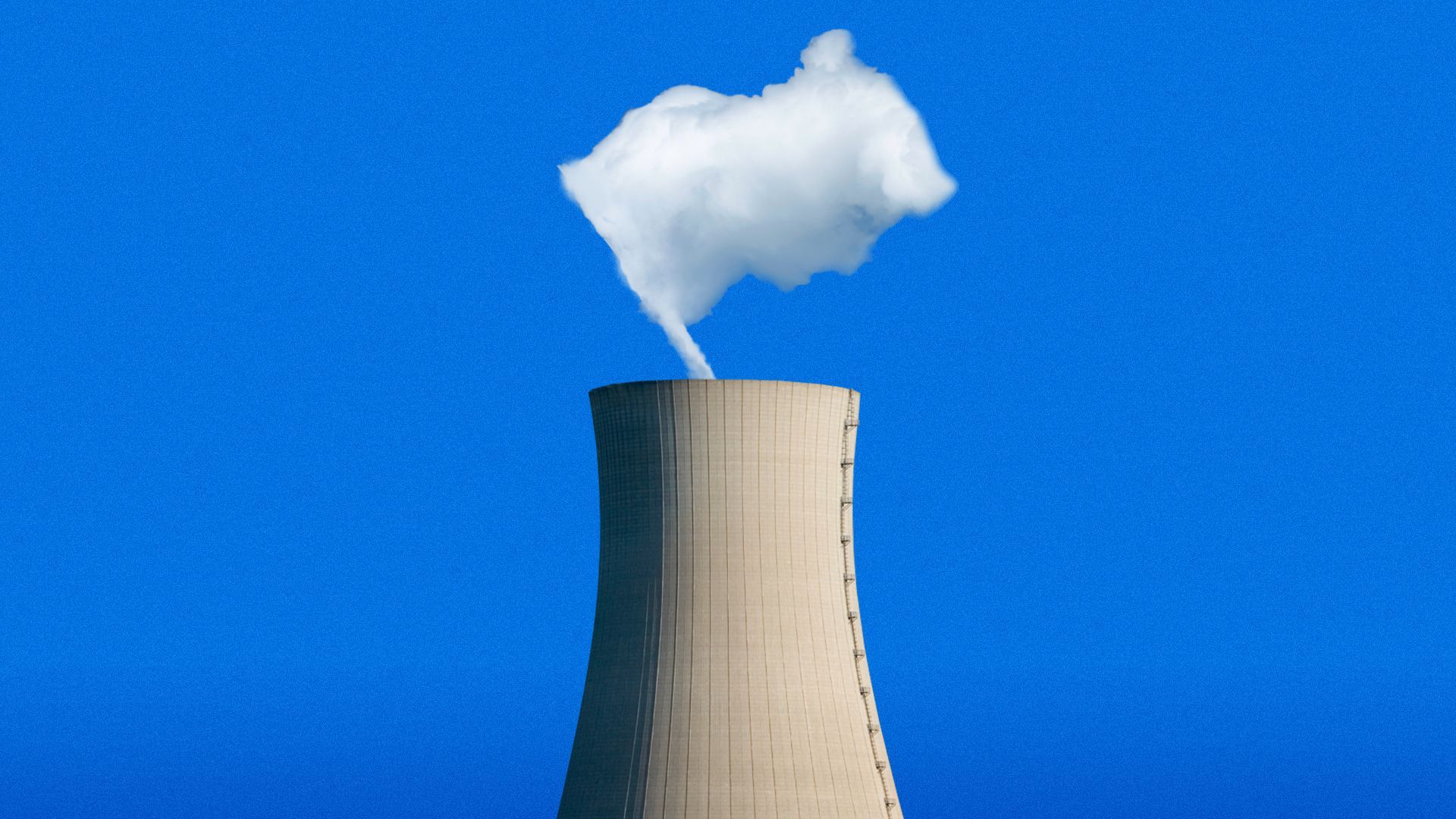| Julian Brave NoiseCat, an expert at a progressive think tank, doesn't like nuclear power, but he's willing to support it because of climate change. Why it matters: NoiseCat personifies a shift in mindset among individuals, corporations and governments that's set to accelerate under President-elect Joe Biden: The urgency of climate change is compelling support for controversial technologies. What he's saying: NoiseCat says his mindset has shifted in two areas: Nuclear power, which emits zero carbon, and technology that captures carbon dioxide from facilities' emissions. "There's a common but often unacknowledged contradiction wherein activists like me insist that climate change is an existential crisis at the same time as we argue that specific political, legislative and technological pathways are off-limits," said NoiseCat, vice president of policy and strategy at Data for Progress. - "If we accept the former point, the latter point is untenable. You don't tell the firefighters they can't use ladders and fire retardant when your building is ablaze," he said.
The big picture: The United Nations, the International Energy Agency, and most scientific and technical experts say nuclear power and carbon capture technology are essential to reach global goals to neutralize heat-trapping emissions by midcentury. - This is in addition to — not in replacement of — drastic increases in renewable energy. Citing those experts, Biden's climate plan supports the tech too.
Driving the news: These technologies have gained bipartisan support in Congress and states. On Capitol Hill, several pieces of recent legislation are candidates for consideration next year (and some may even pass before year's end). The incoming administration will likely be looking for bipartisan policies that can pass a closely divided Senate. Eight states have passed 2050 zero-carbon electricity targets, starting with California in September 2018 and including Arizona last month, according to the Clean Air Task Force, an environmental group. But, but, but: Significant opposition persists, especially among progressive and indigenous interests. The intrigue: NoiseCat said he's talked with other progressive experts whose views are similarly evolving like his, but he chose his words carefully with me because "some of these policy and tech questions have become so taboo," NoiseCat said. - Concerns are legitimate and can be personal, NoiseCat says. For him, a member of the Canim Lake Band Tsq'escen in British Columbia, Canada, it's what he calls the nuclear industry's "horrific history of polluting indigenous communities here in the U.S."
The bottom line: "But at the same time," NoiseCat says, "it makes no sense to take existing nuclear off the table at the precise moment in geological history that we need to be rapidly reducing emissions from our energy system." Go deeper: My full column. | 






No comments:
Post a Comment